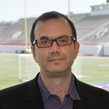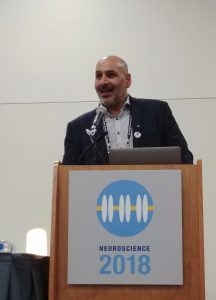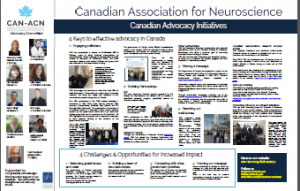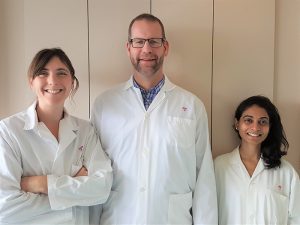Faculty of Science, Department of Biology
University of Victoria
Faculty Position – Tier 2 Canada Research Chair in Cell Biology
The Department of Biology seeks applications for a Tier 2 Canada Research Chair (CRC) in Cell Biology. The successful applicant will be nominated by the University of Victoria for a Tier 2 CRC and, upon approval of the Chair by the CRC Secretariat, will be offered a tenure-track appointment at the appropriate rank. We are a diverse department that fosters a collegial and collaborative environment. Candidates who share this vision and can build tangible links to our department’s strengths in developmental biology, cellular neuroscience and/or evolutionary biology/genetics are especially encouraged to apply.
The successful nominee will have a PhD and/or postdoctoral training in cell biology. They will have demonstrated potential to develop an externally funded, independent and original research program that focuses on mechanisms of cell function. Candidates whose research has a component relating to human health are preferred.
Candidates will be evaluated against criteria set by the CRC program (www.chairs-chaires.gc.ca/program-programme/nomination-mise_en_candidature-eng.aspx#s7). In accordance with regulations for the CRC program, Tier 2 CRC nominees must be within 10 years of receiving their highest degree when they are nominated to the Chair (expected nomination by April 2019). However, applicants who are more than 10 years from having earned their highest degree (and where career breaks exist, such as maternity, parental or extended sick leave, clinical training, etc.) may have their eligibility for a Tier 2 CRC assessed through the program’s Tier 2 justification process. Please contact the Institutional Programs Office at the University of Victoria for more information (cfi@uvic.ca). Please consult the CRC website (www.chairs-chaires.gc.ca/home-accueil-eng.aspx) for full program information.
Candidates should submit a single PDF document that includes a cover letter outlining how the candidate meets the requirements of the position, a CV, and a 2-page description of their proposed research program (including how it complements current departmental strengths). Candidates must provide a 2-page statement on teaching experience and teaching philosophy, including how they have and will support diversity and inclusiveness in teaching and research. Candidates must also include the names and contact information for three referees.
All application documents should be complied into one pdf file and emailed to: Chantal Laliberté (biology@uvic.ca) with the subject heading “Cell Biology position”. For questions regarding the position please contact Dr. Barbara Hawkins, Chair of the Department of Biology via email (biochair@uvic.ca) or phone (250-721-7091).
Application deadline: The committee will begin reviewing applications on Feb 8, 2019, however, applications submitted after this date will still be considered until the position is filled.
UVic is committed to upholding the values of equity, diversity, and inclusion in our living, learning and work environments. In pursuit of our values, we seek members who will work respectfully and constructively with differences and across levels of power. We actively encourage applications from members of groups experiencing barriers to equity. Read our full equity statement here: www.uvic.ca/equitystatement.
The University of Victoria acknowledges the potential impact that career interruptions can have on a candidate’s record of research achievement and encourages applicants to explain in their application the impact that career interruptions may have had on their record of research achievement.
Faculty and Librarians at the University of Victoria are governed by the provisions of the Collective Agreement. Members are represented by the University of Victoria Faculty Association.
Persons with disabilities, who anticipate needing accommodations for any part of the application and hiring process, may contact Francesca Pintucci, Faculty Relations Consultant in the Office of the VP Academic and Provost at (250) 472-5491 or frconsultant@uvic.ca. Any personal information provided will be maintained in confidence.
Contact information
Biology@uvic.ca — documents
bobchow@uvic.ca — questions
Posting end date: 2019/05/31
View a PDF version of this advertisement: CRCt2uvic












